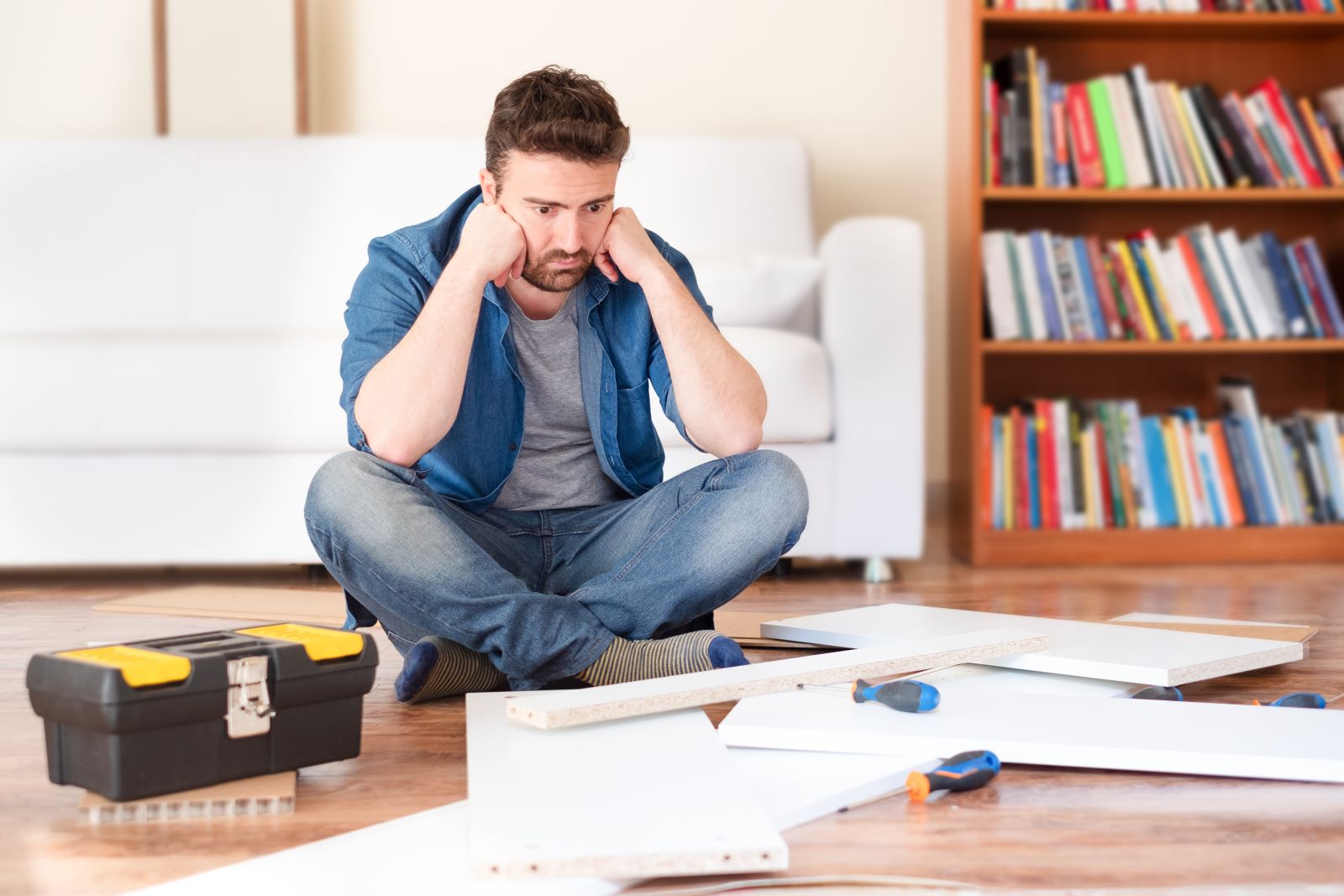DIY Disasters: When Home Projects Are More Hassle Than Help
Let’s be honest: not every home project should be a DIY adventure. Are you really saving anything, or just pouring money down the drain while turning your home into a disaster zone?
1. You’re Not as Handy as You Think

Admit it—you’re no expert. When your “simple” repair turns into a catastrophe, it’s not just frustrating; it’s a stark reminder that good intentions don’t replace real skills.
2. You’re Wasting Money

All those trips to the hardware store add up, especially when you buy the wrong materials or, worse, tools you’ll never use again. What started as a budget-friendly fix often spirals into a financial fiasco.
3. You’re Squandering Time

How many weekends have you sacrificed at the altar of home improvement? Time is money, and your endless project list is stealing precious leisure moments you’ll never get back.
4. You’re Overestimating Your Capabilities

Just because you watched a couple of tutorials doesn’t mean you’re ready to remodel the kitchen. Misjudging your abilities can lead to major mistakes that are expensive and difficult to undo.
5. You’re Underestimating the Mess

Every DIY project comes with mess, but did you consider the scale? Living in a construction zone is stressful, dusty, and disruptive. Is tearing apart your living space really worth the hassle?
6. You’re Jeopardizing Your Home’s Value

Botched DIY jobs don’t just look bad; they can actually decrease your home’s value. Poorly executed paint jobs and ill-fitted fixtures are red flags to potential buyers.
7. You’re Ignoring Safety Risks

Electrical mishaps, structural mishandling, and toxic fume exposure are just a few dangers lurking in DIY projects. One wrong move and you could be facing serious injury—or worse.
8. You’re Creating Unnecessary Stress

The strain of a DIY project gone wrong can put a damper on any household. Fights over fixtures, arguments about aesthetics—why invite the stress?
9. You’re Missing Out on Professional Guarantees

Professionals offer warranties and guarantees. When you DIY, you’re on your own. If something fails, there’s no fallback—just more costs.
10. You’re Being Penny Wise and Pound Foolish

Trying to save a few dollars now might mean spending much more later to fix your mistakes. Sometimes, the smart money is on hiring someone who knows what they’re doing.
11. You’re Neglecting the Complexity of Modern Homes

Today’s homes are more complex than ever, with systems and construction that require specific knowledge. Overlooking this complexity can lead to disastrous and costly outcomes.
12. You’re Avoiding Learning from Mistakes

Each failed DIY attempt should be a learning opportunity, but are you really taking notes, or are you doomed to repeat the same errors?
13. You’re Losing Focus on What’s Important

Your home should be a sanctuary, not a perpetual project site. By turning it into the latter, you’re losing focus on creating a peaceful living environment.
14. You’re Not Accounting for Unseen Complications

What starts as a small project can unearth bigger issues—mold, structural damage, or outdated wiring that you’re not equipped to handle.
15. You’re Trusting Unreliable Sources

That YouTube video or blog post might make it look easy, but how reliable are these sources? Misinformation can lead you down a costly, destructive path.
16. You’re Mismanaging Resources

Every mistake in measurement or material choice means wasted resources. How much unused paint and lumber sits in your garage right now?
17. You’re Exposing Yourself to Legal Issues

Certain projects require permits and adherence to local building codes. DIYing your way around the law can land you in hot water.
18. You’re Forgetting About the Environmental Impact

DIY projects often result in inefficient use of materials and energy. Your mistakes require more materials and energy to fix, increasing your carbon footprint unnecessarily.
19. You’re Compromising on Quality

The finished product rarely compares to a professional job. Are you really okay with living with second-rate results?
20. You’re Misjudging the Finish Line

Finally, that “weekend” project has stretched into months. Realistically assessing timelines is not your strong suit, and your home is stuck in a perpetual state of “almost done.”
Rethink Your DIY Ambitions

Before you pick up another hammer or load another how-to video, take a hard look at the costs, both literal and figurative, of your DIY ambitions. Sometimes, the smartest DIY decision you can make is knowing when to call in the pros.
Not All Tea Is Good for You: List of Teas to Avoid and to Stick To

Not all teas are healthy and some might actually harm your health with poor ingredients. But how can you tell the good from the bad? This guide aims to help you make informed choices without turning you into a tea expert overnight. Not All Tea Is Good for You: List of Teas to Avoid and to Stick To
America’s Spiritual Revolution: Turning Away from Christianity to Embrace Alternatives

As church attendance declines, Americans are exploring diverse spiritual paths, from stargazing druids to unconventional deities like Wi-Fi gods and extraterrestrials. Explore the quirky and sometimes controversial new religions capturing attention as people seek meaning beyond traditional Christianity. America’s Spiritual Revolution: Turning Away from Christianity to Embrace Alternatives
25 Must-Try Global Delicacies

From Bangkok’s bustling streets to Parisian cafes, every corner of the world offers something special for your taste buds. And you don’t have to travel far; even in the USA, you can find a world of flavors. Here are 25 global delicacies every foodie should try, including some local favorites! 25 Must-Try Global Delicacies
16 Affectionate Gestures to Keep the Romance Alive

Sustaining romance in a relationship needs deliberate actions and research-backed gestures to foster intimacy. Here are 16 evidence-based romantic gestures, with steps to integrate them into your relationship and revive the spark. 16 Affectionate Gestures to Keep the Romance Alive
21 Top Christian Attractions to Explore in the U.S.

The U.S. is rich in spiritual destinations, offering awe-inspiring sites for both believers and curious travelers. Explore the 21 most popular Christian attractions across the country, where architecture, history, and faith converge. 21 Top Christian Attractions to Explore in the U.S.
The post DIY Disasters: When Home Projects Are More Hassle Than Help first appeared on Hello Positive Mindset.
Featured Image Credit: Shutterstock / adriaticfoto.
For transparency, this content was partly developed with AI assistance and carefully curated by an experienced editor to be informative and ensure accuracy.






